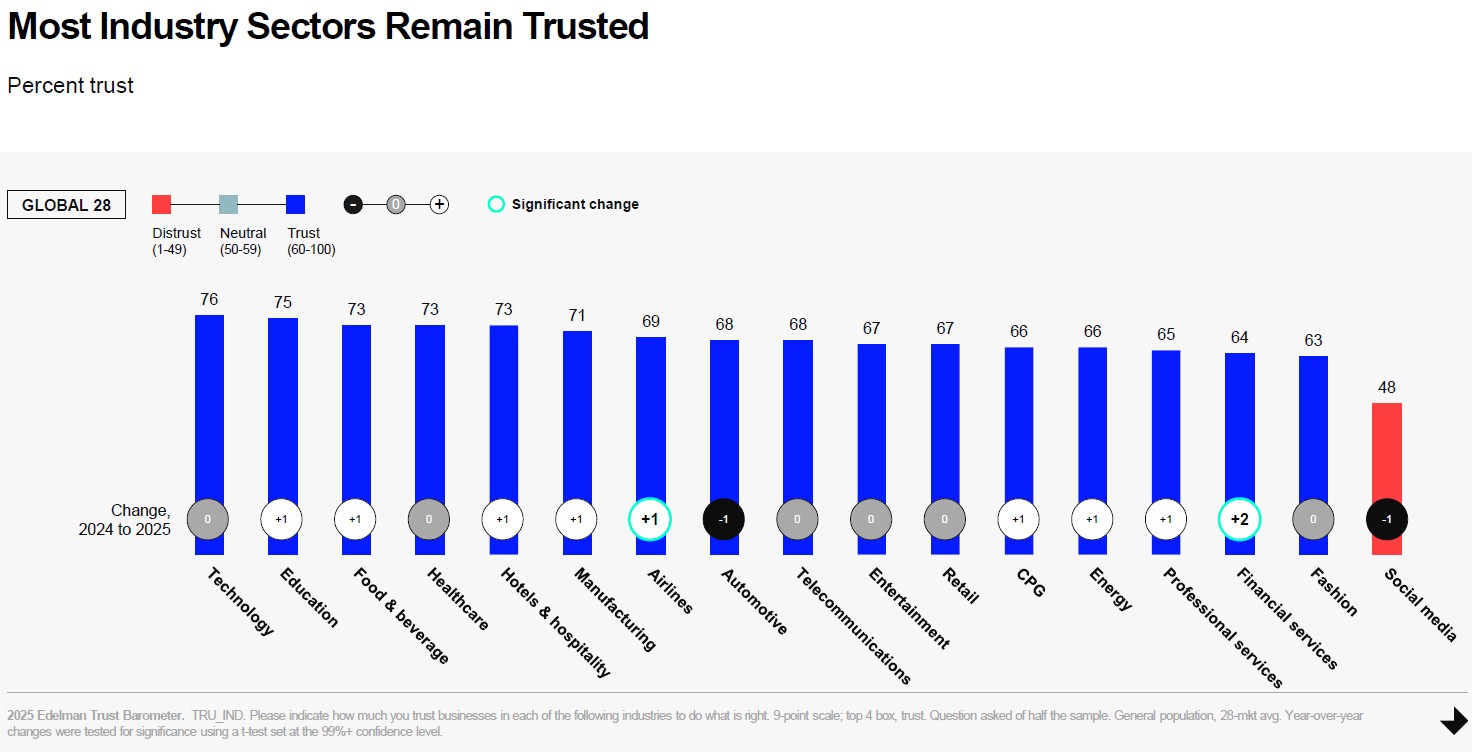
Trust in the news services has dropped from 51% to 35% over the last decade, according to Oxford University’s Reuters Institute Digital News Report. The headline paragraph can be summarised as it’s 2025 and we live in a time of deep political and economic uncertainty, changing geo-political alliances, climate breakdown and many destructive conflicts around the world. Against that background, news journalism should be thriving, but “we find traditional news media struggling to connect with much of the public, with declining engagement, low trust, and stagnating digital subscriptions”.
People no longer trust the news.
A lot of this is due to social media, where we see so much fake news that we no longer trust the mainstream news media. It is the difference between what Reuters call “institutional journalism” and general digital media which includes an array of podcasters, YouTubers, TikTokers and, oh, bloggers.
The last decade and a half has seen the rise of ‘personalities’ and ‘influencers’ who are not media news channels, but opinion-led commentators, with many spreading false narratives or worse. Fake news. No wonder people no longer trust the media, whether scoail or institutional.
Similarly, there is the annual Edelman Trust Report. If you haven’t seen it I blog about it often, and this year’s report shows that:
- 70% of those surveyed globally believe journalists purposely mislead, compared to 59% just four years ago;
- 65% believe the wealthy cause most of the world’s problems; only 36% believe the next generation will be better off;
- 63% believe they will be discriminated against, compared to 52% in 2021.
The core headline is that 61% of people have a moderate or high sense of grievance against business, government and the rich. Grievance. An interesting choice of word, but that is the theme of their report. People feel grievance and a complete loss of trust in institutions.
I also found it interesting that the most trusted industry is technology whilst the least trusted is social media – isn’t that technology? – just behind banking and finance.
The erosion of trust is a big issue of our time. If you get a phone call from a bank, do you reply to their security questions? I always say that I will call them back … and then wait an hour or more in case it was a scammer who still has my number on the line. You receive an email saying your account is about to be closed and then look at the sender and realise it is not from the bank but from a faker. Do you always check the sender’s details? You get a text saying a parcel could not be delivered, but did you order anything?
The fact that we can digitally fake everything today, from news to views and even from people to beasts, is everywhere.
Chris M Skinner
Chris Skinner is best known as an independent commentator on the financial markets through his blog, TheFinanser.com, as author of the bestselling book Digital Bank, and Chair of the European networking forum the Financial Services Club. He has been voted one of the most influential people in banking by The Financial Brand (as well as one of the best blogs), a FinTech Titan (Next Bank), one of the Fintech Leaders you need to follow (City AM, Deluxe and Jax Finance), as well as one of the Top 40 most influential people in financial technology by the Wall Street Journal's Financial News. To learn more click here...


